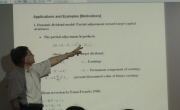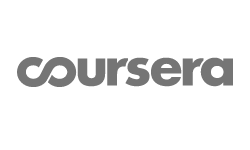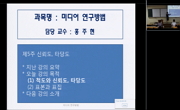Recent decades have brought global expansion of private supplementary tutoring, widely known as shadow education. Such tutoring consumes considerable resources and is usually viewed by participating households as an investment that will increase the r...
http://chineseinput.net/에서 pinyin(병음)방식으로 중국어를 변환할 수 있습니다.
변환된 중국어를 복사하여 사용하시면 됩니다.
- 中文 을 입력하시려면 zhongwen을 입력하시고 space를누르시면됩니다.
- 北京 을 입력하시려면 beijing을 입력하시고 space를 누르시면 됩니다.



The impact of shadow education on student academic achievement: Why the research is inconclusive and what can be done about it
한글로보기부가정보
다국어 초록 (Multilingual Abstract)
Recent decades have brought global expansion of private supplementary tutoring, widely known as shadow education. Such tutoring consumes considerable resources and is usually viewed by participating households as an investment that will increase the recipients’ academic achievements. However, research on the effectiveness of tutoring has delivered inconclusive and even contradictory findings. Part of the reason lies in definitions and foci of research, since private supplementary tutoring may have many different formats, delivery mechanisms and intensities. As with other types of education, it is important also to investigate the qualities of the instructors and the motivations of the students. This creates a complex research arena, in which practical challenges arise from shortcomings in the instruments for securing data and limitations in methods for analyzing the data. This paper assesses the current state of the literature and makes recommendations for the future research agenda.
참고문헌 (Reference)
1 Medway, F. J., "encyclopedia of teaching and teacher education" Pergamon Press 271-274, 1995
2 Baker, D. P., "Worldwide shadow education : Outside-school learning, institutional quality of schooling, and cross-national mathematics achievement" 23 (23): 1-17, 2001
3 Aslam, M., "The ‘shadow’ education sector in India and Pakistan: The determinants, benefits and equity effects of private tutoring" Education Support Programme, Open Society Foundations 2012
4 Bray, M., "The shadow education system : Private tutoring and its implications for planners" UNESCO International Institute for Educational Planning (IIEP) 1999
5 Gauci, D., "The private lessons phenomenon in a form five girls’ mathematics classroom" University of Malta 2009
6 Izumi Mori, "The origin of universal shadow education: what the supplemental education phenomenon tells us about the postmodern institution of education" 교육연구소 11 (11): 36-48, 2010
7 Rohlen, T. P., "The juku phenomenon : An exploratory essay" 6 (6): 207-242, 1980
8 Chong Jae Lee, "The history of policy responses to shadow education in South Korea: implications for the next cycle of policy responses" 교육연구소 11 (11): 97-108, 2010
9 U¨nal, H., "The effect of private tutoring on performance in mathematics in Turkey : A comparison across occupational types" 2 (2): 5512-5517, 2010
10 Dang, H. A., "The determinants and impact of private tutoring classes in Vietnam" 26 (26): 648-699, 2007
1 Medway, F. J., "encyclopedia of teaching and teacher education" Pergamon Press 271-274, 1995
2 Baker, D. P., "Worldwide shadow education : Outside-school learning, institutional quality of schooling, and cross-national mathematics achievement" 23 (23): 1-17, 2001
3 Aslam, M., "The ‘shadow’ education sector in India and Pakistan: The determinants, benefits and equity effects of private tutoring" Education Support Programme, Open Society Foundations 2012
4 Bray, M., "The shadow education system : Private tutoring and its implications for planners" UNESCO International Institute for Educational Planning (IIEP) 1999
5 Gauci, D., "The private lessons phenomenon in a form five girls’ mathematics classroom" University of Malta 2009
6 Izumi Mori, "The origin of universal shadow education: what the supplemental education phenomenon tells us about the postmodern institution of education" 교육연구소 11 (11): 36-48, 2010
7 Rohlen, T. P., "The juku phenomenon : An exploratory essay" 6 (6): 207-242, 1980
8 Chong Jae Lee, "The history of policy responses to shadow education in South Korea: implications for the next cycle of policy responses" 교육연구소 11 (11): 97-108, 2010
9 U¨nal, H., "The effect of private tutoring on performance in mathematics in Turkey : A comparison across occupational types" 2 (2): 5512-5517, 2010
10 Dang, H. A., "The determinants and impact of private tutoring classes in Vietnam" 26 (26): 648-699, 2007
11 Rosenbaum, P. R., "The central role of the propensity score in observational studies for causal effects" 70 (70): 41-55, 1983
12 Yung, W. H., "Shadow education in Hong Kong: The experience of learners of English" The University of Hong Kong. 2011
13 Stevenson, D. L., "Shadow education and allocation in formal schooling : Transition to university in Japan" 97 (97): 1639-1657, 1992
14 Buchmann, C., "Schooling and social capital in diverse cultures" JAI Press 133-159, 2002
15 Mark Bray, "Researching shadow education: methodological challenges and directions" 교육연구소 11 (11): 3-13, 2010
16 Manzoor, S., "Reasons and necessity of private tutoring in English for Bangla medium primary school students in Bangladesh" Department of English and Humanities, BRAC University 2013
17 Acedo, C., "Quality and qualities : Tensions in education reforms" Sense 2012
18 Alexandre Ventura, "Private tutoring through the internet: globalization and offshoring" 교육연구소 11 (11): 59-68, 2010
19 Hamid, M. O., "Private tutoring in English for secondary school students in Bangladesh" 43 (43): 281-308, 2009
20 Walter Dawson, "Private tutoring and mass schooling in East Asia: reflections of inequality in Japan, South Korea, and Cambodia" 교육연구소 11 (11): 14-24, 2010
21 Lee, J. Y., "Private tutoring and its impact on students’academic achievement, formal schooling and educational inequality in Korea" Columbia University 2013
22 Coniam, D., "Private tutorial schools in Hong Kong : An examination of the perceptions of public examination re-takers" 2013
23 Silova, I., "Private supplementary tutoring in Central Asia : New opportunities and burdens" UNESCO International Institute for Educational Planning(IIEP) 2009
24 Nath, S. R., "Private supplementary tutoring among primary students in Bangladesh" 34 (34): 55-72, 2008
25 Ha, T. T., "Primary education in Vietnam : Extra classes and outcomes" 6 (6): 626-634, 2005
26 Byun, S. Y., "Korean education in changing economic and demographic contexts" Springer 39-58, 2014
27 Zhang, L. F., "Handbook of intellectual styles: Preferences in cognition, learning, and thinking" Springer 2012
28 Lee, C. J., "Handbook of education policy research" Routledge for the American Educational Research Association 901-919, 2009
29 Growing Stars, "Growing stars: Online tutoring at its best"
30 Crotty, J. M., "Global private tutoring market will surpass $102.8 billion by 2018" Forbes Magazine
31 Kwo, O., "Facing the shadow education system in Hong Kong" 56 : 20-, 2011
32 Mischo, C., "Expansion and effectiveness of private tutoring" 3 : 263-273, 2002
33 Kuan, P. Y., "Effects of cram schooling on mathematics performance : Evidence from junior high students in Taiwan" 55 (55): 342-368, 2011
34 Johnson, B., "Educational research : Quantitative, qualitative, and mixed approaches" SAGE 2012
35 Baily, S., "Education strategy in the developing world: Revisiting the World Bank’s education policy" Emerald Books 371-393, 2012
36 Silova, I., "Education in a hidden marketplace : Monitoring of private tutoring" Open Society Institute 2006
37 UNESCO., "Education for all—The quality imperative. EFA global monitoring report 2005" UNESCO 2005
38 Zeng, K., "Dragon gate : Competitive examinations and their consequences" Cassell 1999
39 Thapa, A., "Does private school competition improve public school performance?" Columbia University 2011
40 Liu, J., "Does cram schooling matter? Who goes to cram schools? Evidence from Taiwan" 32 (32): 46-52, 2012
41 Ryu, D., "Do private tutoring expenditures raise academic performance? Evidence from middle school students in South Korea" 27 (27): 59-83, 2013
42 Bray, M., "Confronting the shadow education system : What government policies for what private tutoring?" UNESCO International Institute for Educational Planning(IIEP) 2009
43 Fairbrother, G., "Comparative education research: Approaches and methods" Comparative Education Research Centre, The University of Hong Kong;Springer 71-93, 2014
44 Bregvadze, T., "Analysing the shadows : Private tutoring as a descriptor of the education system in Georgia" 5 (5): 80-89, 2012
45 Austin, P. C., "An introduction to propensity score methods for reducing the effects of confounding in observational studies" 46 : 399-424, 2011
46 Tutors International, "About tutors international"
47 Xue, H. P., "A study on additional instruction for students in cities and towns in China" 30 (30): 39-46, 2009
48 Dang, H. A., "A bird’s-eye view of the private tutoring phenomenon in Vietnam" 56 : 26-27, 2011
동일학술지(권/호) 다른 논문
-
- 서울대학교 교육연구소
- 임철일
- 2014
- KCI등재,SCOPUS,SSCI
-
- 서울대학교 교육연구소
- Akiko Yorimitsu
- 2014
- KCI등재,SCOPUS,SSCI
-
Global pressures on education research: quality, utility, and infrastructure
- 서울대학교 교육연구소
- Carolyn D. Herrington
- 2014
- KCI등재,SCOPUS,SSCI
-
- 서울대학교 교육연구소
- Hui Zhang
- 2014
- KCI등재,SCOPUS,SSCI
분석정보
인용정보 인용지수 설명보기
학술지 이력
| 연월일 | 이력구분 | 이력상세 | 등재구분 |
|---|---|---|---|
| 2023 | 평가예정 | 해외DB학술지평가 신청대상 (해외등재 학술지 평가) | |
| 2020-01-01 | 평가 | 등재학술지 유지 (해외등재 학술지 평가) |  |
| 2005-01-01 | 평가 | SSCI 등재 (등재후보1차) |  |
| 2003-01-01 | 평가 | 등재후보학술지 선정 (신규평가) |  |
학술지 인용정보
| 기준연도 | WOS-KCI 통합IF(2년) | KCIF(2년) | KCIF(3년) |
|---|---|---|---|
| 2016 | 0.38 | 0.18 | 0.33 |
| KCIF(4년) | KCIF(5년) | 중심성지수(3년) | 즉시성지수 |
| 0.28 | 0.27 | 0.292 | 0.09 |




 KCI
KCI






